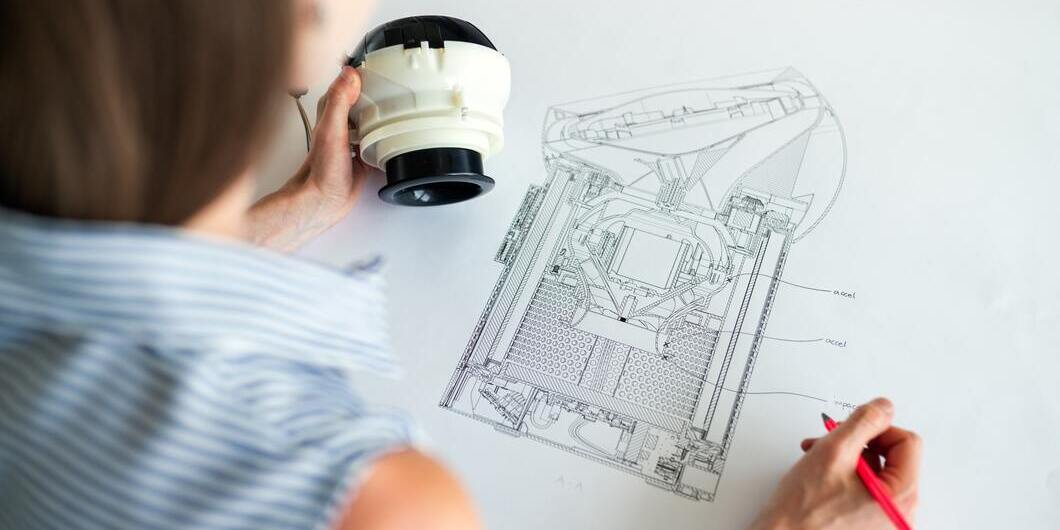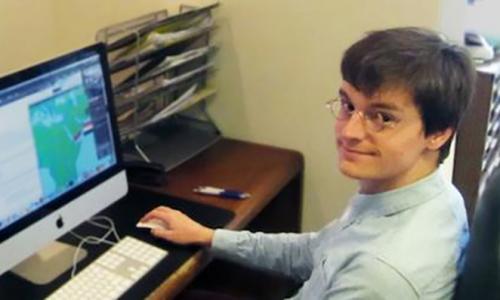
I still remember the difficulties in getting my first co-op. It was daunting and challenging to balance finding a co-op and preparing for interviews while studying for courses and exams. I had no idea what I had signed up for, but today I am glad I went through all this.
My First Co-op
Initially, I had very little engineering experience, very few skills from my courses and an average GPA. After several interviews without reply – I considered quitting my program! I then met with my Co-op Coordinator who asked me to try out a research co-op on campus. So, after all the pain of being rejected from several companies, I approached one of my professors and to my delight, I finally got my first break at SOC Robotics! The professor was really friendly and helpful. He even gave me interview tips and was my only reference for future jobs.
At the time, I thought I had achieved it all – but this was just the beginning. The work was nothing like I imagined. I worked for my professor in his colleague’s basement where I carried out the Mechanical Design and Drafting of Stewart Platforms (Hexapods) used in flight simulation. During my work term, I realized the extensive differences between taking university courses and real-life work. You can’t just sleep in anymore! Studying for courses or doing homework allows working at your own pace and the results will not affect anyone else except for you; however, at work, you have to meet a certain quality of work and deadlines. There is more pressure because your work is seen by your company/clients as having more significant impacts than any of the work done in university.
There was a steep learning curve. I had to learn how to use a program (TurboCAD) all on my own, which I did within the first two weeks at work. This seemed to be a very challenging task at the time, but now that I look back at it – it wasn’t that bad. It’s amazing what one can achieve working 8 hours a day. Having no experience, I wasn’t the greatest at the job, but I did manage to complete most of the work. I had a lot of help from senior engineers and my professor, for which I am grateful.
My Second Co-op
As an engineering student, one of the key lessons I learned is that apart from gaining technical skills, networking is very important – and this is how I landed my second co-op for a company that tested and repaired modems for Telus. After my struggles in finding my first co-op, I thought it would be easier to find my second one. But once again, after several interviews, I ended up with no co-op in hand and time was running out. I talked to everyone including family and friends to help me with an interview. I went out for events where I could meet new people, as well as contacted my older friends via social networks such as Facebook and LinkedIn. It worked! One of my friends recommended me to one of his past supervisors, and because of this, I was asked for an interview. I prepared well and for my second co-op at Communications Test Design, Inc (CTDI), I landed the job as a Test Technician.
Practice makes perfect – I never realized the truth in this statement until I experienced it for myself. At the end of my second term, I had to give a co-op presentation – I had always been nervous of public speaking, but I practiced with a friend who gave me constructive feedback. This really helped and I successfully completed my second co-op term. I also used to dread interviewing until I did mock interviews with SFU’s co-op advisors, as well as with my friends in university – invaluable experience that will help me throughout my life.
Reflections
Initially, with job hunting, one of the mistakes I made was applying to almost all the jobs posted in Symplicity. To do well in an interview, you need to know your interests and strengths and find jobs that work well with them. The best way to find this out is by being curious and exploring more courses and options. I realized my interest lay in electrical design and AutoCAD. I stayed late after classes and self-learned AutoCAD. Now that I think of it, my interest in AutoCAD started back from my first co-op where I self-learned to use TurboCAD which is very similar. Along with this, I also started volunteering on weekends and trust me, these are the best things I had ever done for myself. Not only is volunteering great for networking, building soft skills and good for your resume, but it is also actually really fun. I look forward to doing more. Finally, all this hard work paid off, when I finally landed my third & fourth co-op at SNC-Lavalin. I am currently working as a Systems Engineer Co-op designing the electrical and system components for the new Sky Train stations going from Burnaby to Coquitlam (Evergreen Line), as well as helping with Ottawa’s Light Rail Transit project.
It’s in you to work hard and find what you are passionate about. Be patient and don’t give up!
Beyond the Blog
-
Check out the organizations Mehul worked for in his first co-op at SOC Robotic, second co-op at CTDI, and third/fourth co-op at SNC Lavalin.














